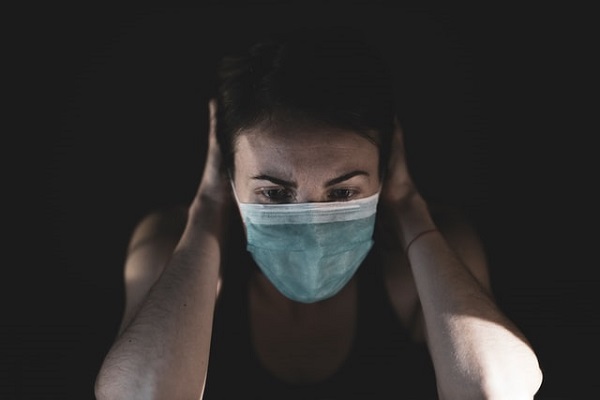
Although there are many individuals who make a full recovery from COVID-19, there are also countless people who continue to experience symptoms long after they’ve been infected with the virus. These individuals are known as COVID “long haulers,” and in this article, you will learn about the ways that people still struggle with a chronic and persistent phenomenon that altered their lives forever.
What Is Long-Haul COVID?
COVID-19 is a highly contagious viral infection that has impacted the entire world and caused a tremendous loss of life.
While its death toll is alarming and it is still a concern, even those who have survived infection continue to deal with the aftermath of the condition.
Not everyone is fortunate enough to make a complete recovery from COVID-19, and even though the infection does pass, people can still struggle with various symptoms for weeks and months after they’ve been infected. This is known as long-haul COVID, or alternatively, post-COVID syndrome.
These effects can potentially last a lifetime; however, long haul COVID is still a relatively new issue, and so it’s still being explored and will be for the foreseeable future.
Below, you will learn more about some of the signs and symptoms of it and what are potential causes of it:
Symptoms of Long-Haul COVID
Because COVID-19 is a respiratory infection, many of the lingering effects are issues that concern the lungs. However, it can also cause neurological, cardiovascular, and gastrointestinal issues, and changes in sensation. Here is a list of some of the symptoms that are associated with post-COVID syndrome:
- Breathing difficulties, including shortness of breath
- Chest pains
- Chronic coughing
- Muscle and joint pain
- Fatigue
- Sleep difficulties
- Concentration issues, a.k.a. “Brain fog”
- Headaches
- Dizziness
- Rapid or irregular heart rate
- A loss of senses, such as taste and smell
- Stomach aches
- Diarrhea
Additionally, due to its lasting impact on one’s health and ability to live their life to the fullest, people with long-haul COVID are also known to struggle with mental health issues, like anxiety and depression. This is especially the case for those who cannot find employment because of complications.
What Causes Long-Haul COVID?
COVID-19 infections are known to cause damage to various organs like the lungs, heart, and kidneys. Consequently, this can contribute to the persistent issues people can experience long after their initial infection has passed.
However, people who have only had mild symptoms before also report signs of the post-COVID syndrome.
Other risk factors like smoking and pre-existing health conditions may also exacerbate symptoms in those who were once infected.
Can People With Long-Haul COVID Fully Recover?
Although people can make a complete recovery following the initial infection of COVID-19, it’s not necessarily the case who are experiencing additional complications in the aftermath of it.
The ability to recover depends on what is causing these symptoms – as mentioned before, the virus can damage vital organs, so they may be chronic and life-long; no one can really say for sure yet.
Still, many aspects are treatable, and people can find relief for the issues they face, which will be discussed later in this article.
Can Long-Haul COVID Be Prevented?
The only way post-COVID symptoms can be prevented is by being proactive and reducing the risk of infection by getting vaccinated as soon as possible and doing things to protect themselves in their daily life, like wearing a mask, sanitizing, washing your hands, and practicing social distancing.
It is currently unclear if vaccinations improve symptoms of long-haul COVID, but it’s still essential for people to protect themselves to prevent being infected again.
How Nurses Can Help
Even though COVID cases will decrease over time, many patients will report post-COVID symptoms and schedule visits with their doctors, especially if they have trouble breathing, heart palpitations, and chest pain.
Because the symptoms can affect several body areas, patients may be referred to specialists. Additionally, many of the signs of post-COVID syndrome can imitate other conditions. Therefore, other issues should be ruled out first, or it may be determined that the cause is an undiagnosed pre-existing condition.
Once a physician has received more answers, as a healthcare worker, you can show patients ways they can manage these symptoms and improve their quality of life, and you can encourage and point them towards resources that can provide rehabilitation.
For example, exercise is typically recommended because it can help improve heart and lung functioning, and physical therapy can relieve joint and muscular pain. Good nutrition and working on sleep habits can positively influence mood and energy levels.
Because these symptoms can be severe and life-changing, those who struggle with mental health concerns related to COVID-19 may also be referred to counselors and therapists, and other informative resources to help them cope with issues like depression and anxiety.
For example, BetterHelp offers more articles like this one that are centered around current events and how they can affect one’s mental health. Patients can also find information on how they can connect to a licensed professional online who understands issues such as the impact that COVID-19 had on people.
Support For Nurses
Nurses who are struggling during this pandemic can also benefit from mental health resources. By finding support, healthcare workers can learn ways to take care of themselves and avoid burnout.
Essential workers, such as those who work in the medical field, are experiencing stress like never before, and therefore, it’s crucial that they develop effective coping skills to help reduce it, and stay physically and mentally healthy during this global crisis.
Self-care is just as crucial as the indispensable service that nurses provide, therefore, it should never be neglected, and your well-being should be prioritized.
Conclusion
Although COVID-19 cases have been decreasing due to vaccinations, people are still experiencing uncomfortable symptoms that are affecting their way of life, and thus, post-COVID issues are on the rise.
Hopefully, by reading this article, you have a better understanding of what to look for and what you can provide to patients who complain of complications due to long-haul COVID. Of course, be sure to also take care of your health during these unprecedented times, including reaching out for support from other professionals like yourself.
This article was contributed by Marie Miguel, who has been a writer and research expert for nearly a decade, covering a variety of health-related topics. Currently, she is contributing to the expansion and growth of a free online mental health resource with BetterHelp.com. With an interest and dedication to addressing stigmas associated with mental health, she continues to specifically target subjects related to anxiety and depression.







